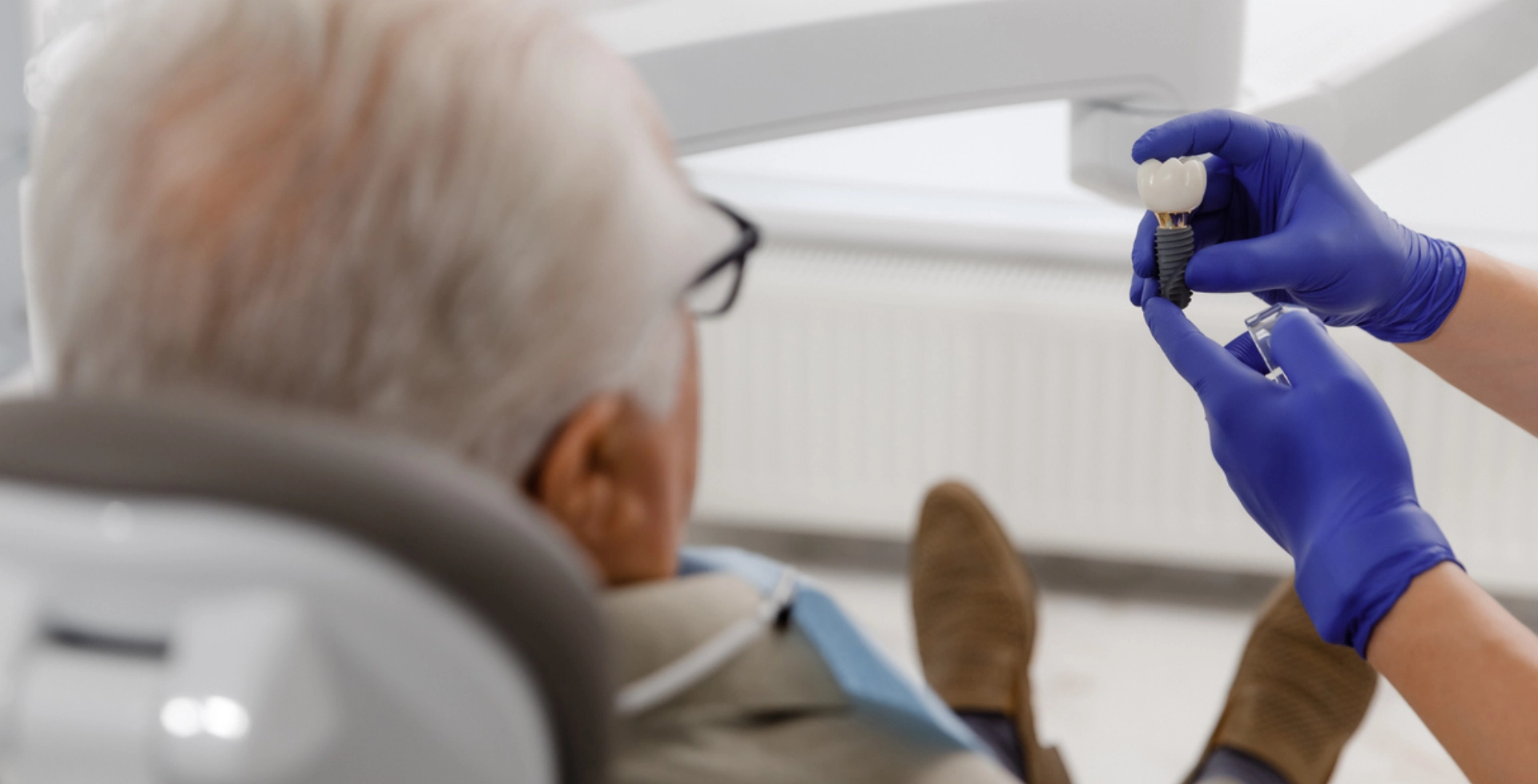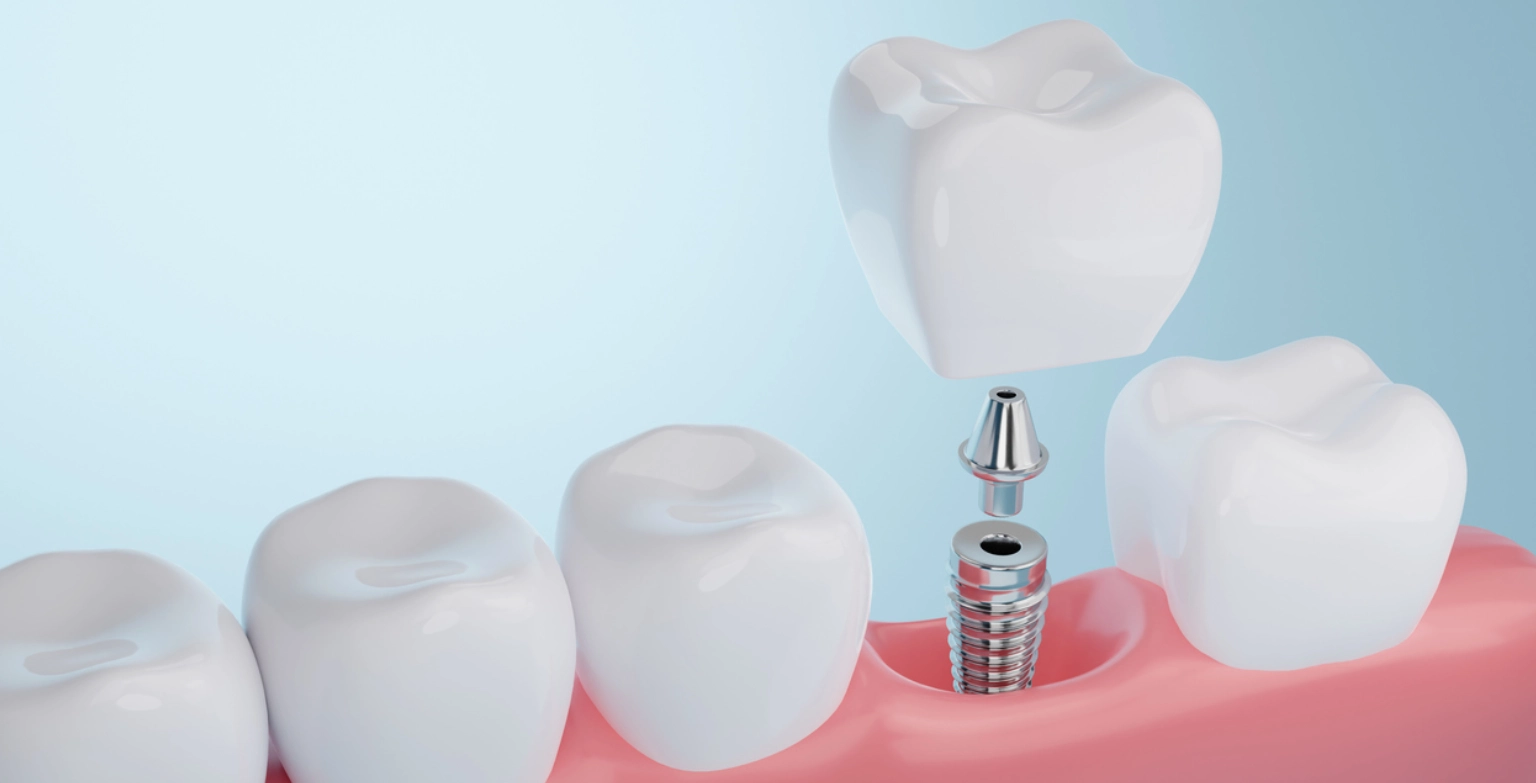What Can I Eat After All-on-4?

Are you planning to get an All-on-4 and thinking ‘What can I eat after all-on- 4 procedure?’ We will help you answer the question.
All-on-4 dental implants are a revolutionary solution for those seeking a stable, functional, and aesthetically pleasing alternative to traditional dentures. While the procedure provides a quick path to a beautiful smile, it’s natural to have questions about the recovery process—especially about diet.
In this blog, we’ll answer the question, “What can I eat after All-on-4?” and provide a detailed guide on the best foods to include and avoid during your healing journey. Following these dietary recommendations will help ensure a smooth recovery and long-lasting success for your implants.
Guidelines for Eating and Drinking After All-on-4
In the days and weeks following the All-on-4 dental implant procedure, proper dietary precautions are crucial for a smooth recovery. Patients must pay close attention to their food choices, especially during the first two weeks and up to three months after the implants are placed.
Choosing the right foods during this recovery phase can minimize discomfort, such as pain or swelling. Additionally, it supports faster healing, allowing patients to return to their daily routines more quickly. For individuals with specific dietary needs or restrictions, consulting a dietician before making any adjustments is strongly recommended to ensure nutritional balance and compatibility with recovery guidelines.

What to Eat After All-on-4 Dental Implants?
Recovering from All-on-4 dental implants requires a carefully planned diet to support healing and protect your new implants. By choosing the right foods during each phase of recovery, you can ensure a smoother healing process and long-term success.
Phase 1: Immediate Post-Surgery (First Two Weeks)
In the first two weeks after the All-on-4 procedure, a liquid diet is essential to avoid putting pressure on the healing implants. Your jaw, mouth, and tongue may be sore, making chewing difficult. Cool liquids are recommended for the first couple of days to reduce discomfort, avoiding hot or spicy options.
Hydration and Nutrition:
- Stay hydrated by sipping fluids throughout the day, which aids in healing.
- Choose nutrient-rich liquids like protein shakes or meal replacement drinks to support recovery.
- Avoid using straws, as the suction can disturb the blood clots around the implant sites, potentially causing bleeding.
Recommended Liquids:
- Water
- Protein shakes and smoothies (ensure light textures without chunks)
- Broths and cream-based soups
- Milk, tea, or coffee (lukewarm)
- Fruit juices and coconut water
- Milkshakes, frozen yogurt, custard, or ice cream
As the days progress, you can gradually tolerate thicker, nutrient-dense smoothies and shakes.
Phase 2: Transition to Soft Foods (Weeks 2-6)
After two weeks, as the soreness subsides and the healing progresses, you can start with a soft food diet. Soft foods that require minimal chewing help ease the shift while protecting your implants.
Recommended Soft Foods:
- Mashed Foods: Mashed potatoes, sweet potatoes, and avocado.
- Cooked Grains: Oatmeal, polenta, and quinoa.
- Eggs and Dairy: Scrambled eggs, soft tofu, cheese, and yogurt.
- Soft Bread: Lightly toasted or soft bread that is easy to chew.
- Hummus and Purees: Smooth, soft dips and pureed vegetables.
Best High-Fiber Foods to Include After the All-on-4 Procedure
Incorporating high-fiber foods into your diet after the All-on-4 procedure can support overall health and digestion, which is especially important during recovery. Here are some of the best high-fiber foods to consider:
- Whole Grain Bread: Choose darker, whole-grain bread options over white bread, as they are less processed and richer in fiber.
- Whole Grains: Foods like oatmeal, quinoa, and barley are excellent sources of fiber and easy to prepare.
- Fruits: Fresh fruits such as apples, bananas, and berries provide a natural source of fiber and essential vitamins.
- Steamed Vegetables: Softened steamed vegetables like carrots, zucchini, and broccoli are nutrient-dense and easy on the mouth.
- High-Fiber Cereal: Check nutrition labels for cereals with “fiber” in the name or opt for classics like oatmeal or cream of wheat to avoid sugary, low-fiber options.
Foods to Avoid After All-on-4 Dental Implant Surgery
During your recovery from All-on-4 dental implant surgery, avoiding certain foods is crucial to ensure proper healing and protect your implants. Here’s a detailed list of foods to steer clear of:
- Hard Meats: Tough cuts like steak and chicken can put excessive strain on your implants and should be avoided.
- Hard Bread: Dense options like bagels and crusty rolls can be difficult to chew and potentially harmful.
- Crunchy Foods: Items like chips, pretzels, and raw vegetables place unnecessary pressure on the implant sites.
- Sticky Foods: Caramel, taffy, and gummy candies can get stuck around your implants, causing discomfort.
- Hard Candies: Biting into hard candies poses a risk of chipping or damaging your implants.
- Nuts and Seeds: Small, hard particles can be abrasive and may interfere with healing.
- Spicy or Acidic Foods: These can irritate the surgical area, slowing down the healing process.
- Tough Vegetables: Raw carrots, celery, and other hard vegetables require significant chewing and should be avoided.
Tips for a Successful Recovery Diet
- Always follow your dentist’s recommendations for post-surgery care.
- Prioritize hydration and nutrient-rich foods for healing.
- Gradually reintroduce solid foods based on your comfort level and healing progress.
- Practice mindful chewing and avoid putting direct pressure on the implant sites.
- As you recover, pay close attention to how your mouth feels after eating. If a food causes discomfort, pause and opt for softer, easier-to-eat alternatives.
Takeaway
Recovering from All-on-4 dental implant surgery is a journey that requires patience, care, and thoughtful dietary choices. By following the recommended diet phases, staying hydrated, and avoiding foods that may hinder healing, you can ensure a smooth recovery and the long-term success of your implants. With a little planning and adherence to these guidelines, you’ll be enjoying your favorite meals again before you know it.
Ready to Restore Your Smile? Book Your Consultation Today!
At Brookline Smile Artists, we’re committed to guiding you through every step of your All-on-4 journey, from surgery to recovery. Need personalized advice on your recovery diet or have questions about the procedure? Book your consultation today and take the next step toward a healthier, more confident smile with us.
FAQ
How long after All-on-4 can I eat normally?
It usually takes about three to six months for complete healing after All-on-4 surgery. You can gradually introduce harder-to-chew foods after the first few months as your implants integrate with the jawbone.
What is the best food after implants?
For the first few weeks post-surgery, stick to a soft food diet. Options like soups, mashed potatoes, soft pasta, and smoothies are ideal. After a few weeks, you can try soft meats like shredded chicken or fish.
What is the recovery time for All-on-4?
The recovery time for All-on-4 implants ranges from two to six months. Initial discomfort, swelling, and bruising usually subside within a few days, with full healing occurring as the implants integrate with the jawbone.

If you are looking for a dentist in Brookline, MA, schedule your consultation with the team at Brookline Smile Artists. We offer Cosmetic and Restorative Dentistry. We are located at 209 Harvard Street, Suite 402 in Brookline. Our office hours are Monday through Thursday from 7:30 AM to 5:30 PM and Friday from 8:00 AM to 2:00 PM.

One of the top rated dentists in Brookline, MA




